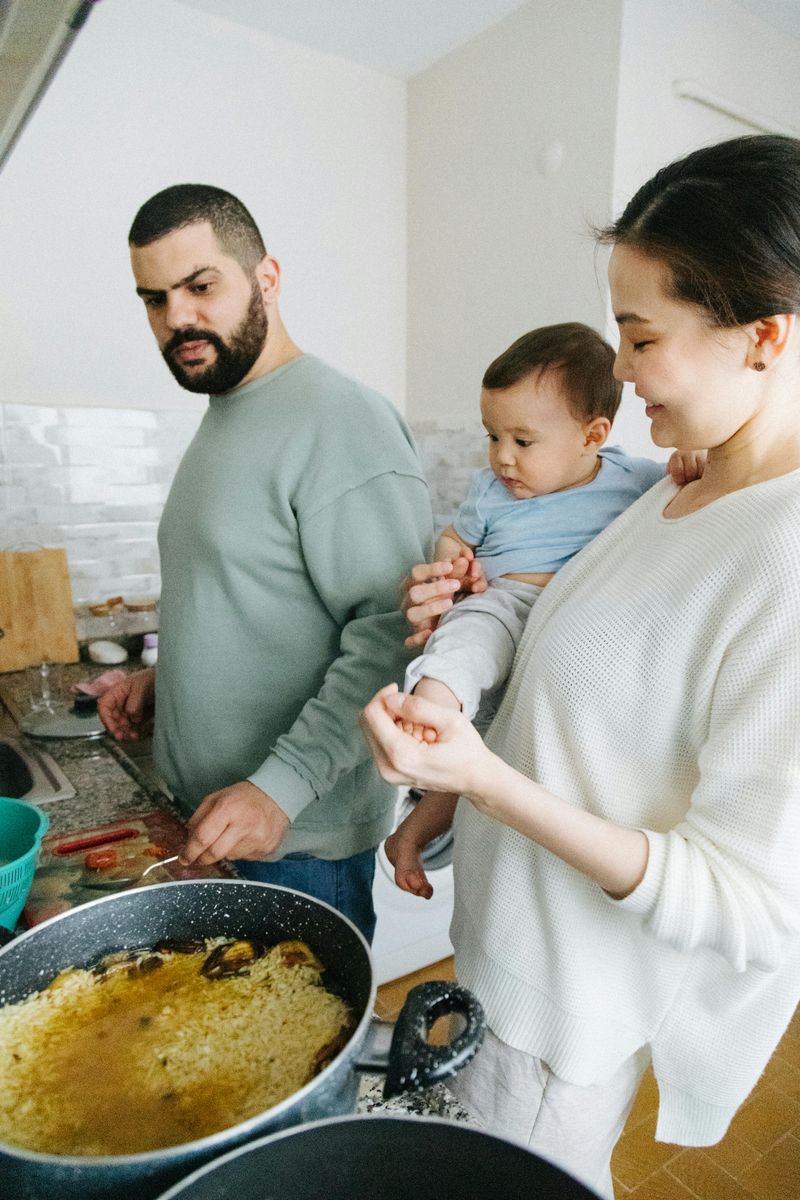9 Keys to Strengthening Your Relationship During the Parenting Years

Becoming parents changes everything, including your relationship with your partner. Between sleepless nights, busy schedules, and the constant demands of raising little humans, your once-thriving partnership can easily take a backseat. But a strong relationship actually helps you become better parents. These 9 strategies will help you nurture your connection even during the chaotic parenting journey.
1. Create Meaningful Couple Rituals

Children thrive on routine, and so do relationships! Establish simple rituals that connect you as partners, not just co-parents. Maybe it’s Saturday morning coffee before the kids wake up or a weekly walk after dinner.
These moments don’t require elaborate planning or babysitters. Even watching your favorite show together after the kids sleep creates relationship-strengthening continuity in your busy lives.
The beauty of rituals is their reliability—they happen regardless of how chaotic life gets. When everything else feels unpredictable with children, these touchpoints remind you that your relationship remains a constant source of support.
2. Master the Art of Open Communication

Remember when you could finish each other’s sentences? Parenting often disrupts that flow. Reclaim it by creating judgment-free zones where both partners express needs without criticism.
Try the 10-minute rule: each person gets 5 uninterrupted minutes to share feelings while the other listens without planning responses. This simple practice prevents communication breakdowns when you’re exhausted from parenting duties.
Appreciation matters too—acknowledge the small things your partner does. “Thank you for handling bath time tonight” carries more relationship-building power than you might think.
3. Share the Load Fairly

Nothing breeds resentment faster than feeling like you’re doing everything while your partner relaxes. Divide responsibilities based on strengths rather than gender roles or assumptions.
Make a list of all parenting and household tasks, then distribute them fairly. One might handle morning routines while the other manages bedtimes. Revisit this division regularly as family needs change.
The magic happens when both partners feel equally invested. When neither person feels taken for granted, you preserve the friendship that forms the foundation of your romantic relationship.
4. Protect Your Intimate Connection

Physical intimacy often becomes collateral damage in the parenting years. Between exhaustion and children with radar for private moments, couples find themselves disconnected physically.
Broaden your definition of intimacy—holding hands during family movie night or exchanging a genuine kiss (not just a quick peck) builds connection. For sexual intimacy, morning might work better than night when you’re less exhausted.
Discuss desires openly instead of assuming your partner can read your mind. Sometimes scheduling intimacy feels unromantic, but parents who prioritize connection find spontaneity returns once the habit is reestablished.
5. Sprinkle Daily Acts of Kindness

Grand gestures make great stories, but relationships thrive on tiny moments of connection. A gentle touch while passing in the hallway or bringing your partner’s favorite snack home creates emotional bonds that withstand parenting stress.
Start a kindness habit—maybe a sweet text during the workday or taking over a chore they dislike without being asked. These small actions say “I’m still thinking of you” amid the parenting chaos.
Parents often save all their patience and kindness for their children. Reserve some of that tenderness for each other, and watch how it transforms your home’s atmosphere.
6. Align Your Parenting Vision

Nothing undermines your partnership faster than contradicting each other’s parenting decisions. Children quickly learn to exploit these differences! Regular “summit meetings” help maintain unity on core values while allowing flexibility on smaller issues.
Create a shared family mission statement addressing your hopes for your children and relationship. This becomes your north star during difficult parenting moments.
Supporting each other’s authority strengthens both your parenting effectiveness and partnership. When disagreements arise, discuss them privately rather than overruling each other in front of the children.
7. Transform Conflict Into Growth

Arguments happen in every relationship, but parenting adds explosive new triggers—from discipline differences to in-law boundaries. The healthiest couples don’t avoid conflict; they handle it skillfully.
Use “I feel” statements instead of accusatory “you always” phrases. “I feel overwhelmed when bedtime routines fall entirely to me” opens conversation better than “you never help with bedtime.” Take timeouts when emotions run hot.
Conflicts actually strengthen relationships when handled respectfully. Each successfully navigated disagreement builds trust that you can work through future challenges as a united team.
8. Schedule Sacred Couple Time

Once kids arrive, spontaneous outings often disappear. That’s why putting date nights directly on the calendar is essential—treat them like any other important commitment.
Whether it’s a monthly dinner at your favorite spot, a cozy takeout night after the sitter arrives, or even a planned walk together, consistency matters more than extravagance.
Couples who prioritize scheduled dates keep their connection alive, showing children that love doesn’t stop with parenthood. A strong partnership builds a secure, stable foundation the whole family benefits from.
9. Embrace Outside Support

Strong relationships aren’t built in isolation. The healthiest couples recognize when they need help and seek it without shame. This might mean finding trusted babysitters, joining parenting groups, or even relationship counseling.
Consider therapy as relationship maintenance rather than crisis intervention. Many couples find check-in sessions during major parenting transitions (new baby, starting school, teenage years) prevent larger problems.
Building a support network also means maintaining individual friendships. Time with friends provides perspective and prevents your relationship from bearing the weight of all your social and emotional needs.

Comments
Loading…